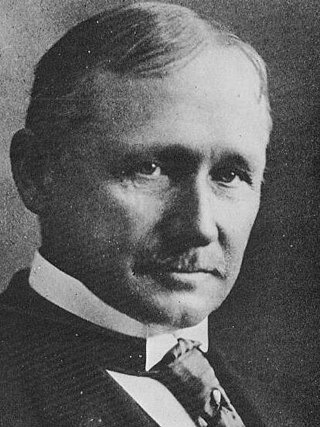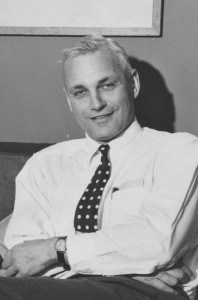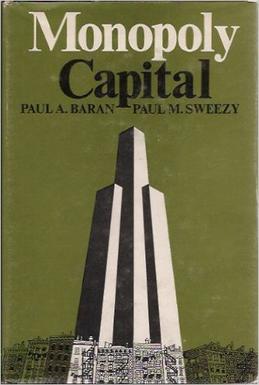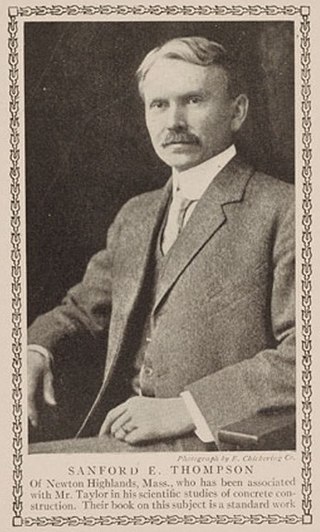
Industrial sociology, until recently a crucial research area within the field of sociology of work, examines "the direction and implications of trends in technological change, globalization, labour markets, work organization, managerial practices and employment relations" to "the extent to which these trends are intimately related to changing patterns of inequality in modern societies and to the changing experiences of individuals and families", and " the ways in which workers challenge, resist and make their own contributions to the patterning of work and shaping of work institutions".

Frederick Winslow Taylor was an American mechanical engineer. He was widely known for his methods to improve industrial efficiency. He was one of the first management consultants. In 1909, Taylor summed up his efficiency techniques in his book The Principles of Scientific Management which, in 2001, Fellows of the Academy of Management voted the most influential management book of the twentieth century. His pioneering work in applying engineering principles to the work done on the factory floor was instrumental in the creation and development of the branch of engineering that is now known as industrial engineering. Taylor made his name, and was most proud of his work, in scientific management; however, he made his fortune patenting steel-process improvements. As a result, scientific management is sometimes referred to as Taylorism.

The Monthly Review is an independent socialist magazine published monthly in New York City. Established in 1949, the publication is the longest continuously published socialist magazine in the United States.

Paul Marlor Sweezy was a Marxist economist, political activist, publisher, and founding editor of the long-running magazine Monthly Review. He is best remembered for his contributions to economic theory as one of the leading Marxian economists of the second half of the 20th century.
Labour power is the capacity to do work, a key concept used by Karl Marx in his critique of capitalist political economy. Marx distinguished between the capacity to do work, i.e. labour power, and the physical act of working, i.e. labour. Labour power exists in any kind of society, but on what terms it is traded or combined with means of production to produce goods and services has historically varied greatly.

Lyndall Fownes Urwick was a British management consultant and business thinker. He is recognised for integrating the ideas of earlier theorists like Henri Fayol into a comprehensive theory of management administration. He wrote an influential book called The Elements of Business Administration, published in 1943. With Luther Gulick, he founded the academic journal Administrative Science Quarterly.
Harry Braverman was an American Marxist, worker, political economist and revolutionary. Born in New York City to a working-class family, Braverman worked in a variety of metal smithing industries before becoming an editor at Grove Press, and later Monthly Review Press, where he worked until his death at the age of 55 in Honesdale, Pennsylvania. Braverman is most widely known for his 1974 book Labor and Monopoly Capital: The Degradation of Work in the Twentieth Century, "a text that literally christened the emerging field of labor process studies" and which in turn "reinvigorated intellectual sensibilities and revived the study of the work process in fields such as history, sociology, economics, political science, and human geography."

John Bellamy Foster is an American professor of sociology at the University of Oregon and editor of the Monthly Review. He writes about political economy of capitalism and economic crisis, ecology and ecological crisis, and Marxist theory. He has given numerous interviews, talks, and invited lectures, as well as written invited commentary, articles, and books on the subject.
William Henry Leffingwell was an American organizational theorist, president of W. H. Leffingwell, Inc., New Jersey, management author, and the founder of National Office Management Association.
In economics, deskilling is the process by which skilled labor within an industry or economy is eliminated by the introduction of technologies operated by semi- or unskilled workers. This results in cost savings due to lower investment in human capital, and reduces barriers to entry, weakening the bargaining power of the human capital. Deskilling is the decline in working positions through the machinery or technology introduced to separate workers from the production process.

Charles Eugène Bedaux was a French-American millionaire who made his fortune developing and implementing the work measurement aspect of scientific management, notably the Bedaux System. Bedaux was friends with British royalty and Nazis alike, and was a management consultant, big game hunter and explorer. In 1934, he was the fifth wealthiest man in the United States.

Monopoly Capital: An Essay on the American Economic and Social Order is a 1966 book by the Marxian economists Paul Sweezy and Paul A. Baran. It was published by Monthly Review Press. It made a major contribution to Marxian theory by shifting attention from the assumption of a competitive economy to the monopolistic economy associated with the giant corporations that dominate the modern accumulation process. Their work played a leading role in the intellectual development of the New Left in the 1960s and 1970s. As a review in the American Economic Review stated, it represented "the first serious attempt to extend Marx’s model of competitive capitalism to the new conditions of monopoly capitalism." It attracted renewed attention following the Great Recession.
Labour process theory (LPT) is a Marxist theory of the organization of work under capitalism. Researchers in critical management studies, organization studies, and related disciplines have used LPT to explain antagonistic relationships between employers and employees in capitalist economies, with a particular focus on problems of deskilling, worker autonomy, and managerial control at the point of production.
Neo-Marxism is a collection of Marxist schools of thought originating from 20th-century approaches to amend or extend Marxism and Marxist theory, typically by incorporating elements from other intellectual traditions such as critical theory, psychoanalysis, or existentialism. Neo-Marxism comes under the broader framework of the New Left. In a sociological sense, neo-Marxism adds Max Weber's broader understanding of social inequality, such as status and power, to Marxist philosophy.
Marxian economics, or the Marxian school of economics, is a heterodox school of political economic thought. Its foundations can be traced back to Karl Marx's critique of political economy. However, unlike critics of political economy, Marxian economists tend to accept the concept of the economy prima facie. Marxian economics comprises several different theories and includes multiple schools of thought, which are sometimes opposed to each other; in many cases Marxian analysis is used to complement, or to supplement, other economic approaches. Because one does not necessarily have to be politically Marxist to be economically Marxian, the two adjectives coexist in usage, rather than being synonymous: They share a semantic field, while also allowing both connotative and denotative differences. An example of this can be found in the works of Soviet economists like Lev Gatovsky, who sought to apply Marxist economic theory to the objectives, needs, and political conditions of the socialist construction in the Soviet Union, contributing to the development of Soviet Political Economy.

The Taylor Society was an American society for the discussion and promotion of scientific management, named after Frederick Winslow Taylor.
Theories of imperialism are a range of theoretical approaches to understanding the expansion of capitalism into new areas, the unequal development of different countries, and economic systems that may lead to the dominance of some countries over others. These theories are considered distinct from other uses of the word imperialism which refer to the general tendency for empires throughout history to seek power and territorial expansion. The theory of imperialism is often associated with Marxist economics, but many theories were developed by non-Marxists. Most theories of imperialism, with the notable exception of ultra-imperialism, hold that imperialist exploitation leads to warfare, colonization, and international inequality.
The Bedaux Unit emerged from the U.S. scientific management movement. It remains in daily use in measuring and comparing manual labor to this day.

Sanford Eleazer Thompson (1867–1949) was an American engineer and consultant to the U.S. government and private sector. He is considered one of the key figures of the American scientific management movement, which emerged in the progressive era.

Clarence Hunter Northcott (1880–1968) was an Australian sociologist and manager at the Rowntree's Works at York. He was influential in the development of the Chartered Institute of Personnel and Development.













